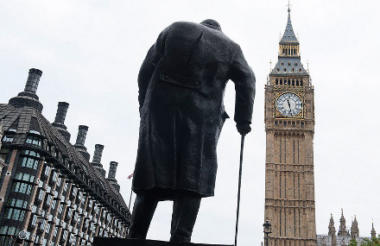Andrew Purkis responds to the PACAC accusation that trustees were "wilfully blind or incompetent" and gives five reasons why they failed to exercise oversight more effectively.
Bernard Jenkin, chair of the House of Commons Public Administration and Constitutional Affairs Committee (PACAC), has delivered this verdict on the scandal caused by the fundraising practices of some large charities: "All the chief executives of the charities that gave oral evidence to us admitted that they did not scrutinise fundraising by sub-contractors enough. The only possible conclusion is that, by failing in this responsibility, trustees were either not competent, or wilfully blind to what was being done in their names."
I have been a trustee of five UK charities, including being chair of four, one of which raises about £60m per year, although fortunately it has not been one of those in the limelight of the scandal.
I agree with PACAC that trustees are ultimately responsible for what is done by staff or contractors in their name, in the same way that ministers are ultimately responsible for what is done by their civil servants or contractors. I also agree that trustees were failing to exercise effective oversight of fundraising practices that proved to be unacceptable and have damaged the public reputation of charities in general. It is good that this is perceived as a wake-up call for trustees. But I do not agree that this is about people in trustee positions being wilfully blind or incompetent.
On the contrary, the serious question to address is: how come trustees who are just as committed, experienced, conscientious and competent as the members of PACAC failed to exercise oversight more effectively?
Here are five reasons to help explain this reality.
1. Fear of interference in operational matters
One of the greatest challenges for trustees of charities with paid staff is to strike the right balance between holding the staff to account, whilst also trusting them to manage the organisation day to day. It is a constant problem that some trustees want to get involved in detailed management or operational decisions.
Why a “problem”? Because a trustee does not know all the circumstances or details and is not in the right position to make such decisions, because it wastes a lot of board time, demoralises the staff, and diverts energy and focus away from the trustees’ principal role of attending to big picture strategy, values, solvency and fiduciary duties.
As a result, many experienced trustees and almost all charity staff are allergic to trustee fiddling with operational and management matters. The corollary is that the senior paid staff of the charity should carry the lion’s share of responsibility when operational practice or management decisions are inconsistent with the clear values and reputational interests of the charity.
2. Ambiguous borderline between ‘operational’ and ‘board level’ issues
The trickiest problems in managing board/staff relationships may, therefore, come when matters that are “operational” in themselves have wider implications for the values and reputation of the charity.
One example is the drafting of all kinds of messages to the charity’s different audiences. It would be a highly inefficient use of time for every single such communication in a big charity to be vetted by trustees. Yet it takes only one errant piece of drafting to cause reputational embarrassment.
Fundraising practice is another example of this difficult borderland. How a fundraising contract with an external agency is monitored, or the detailed manner in which a team of fundraisers communicate with supporters, are management responsibilities. But whereas each particular example of this sort is properly seen as “operational”, the cumulative impact involves questions of reputation and values that belong to the board.
So trustees have to try to satisfy themselves that the right policies and codes are in place and that there are adequate systems to monitor them, without crossing the boundary of operational interference – not at all easy, even if the issue has enough salience among all the other risks that trustees are trying to guide staff to manage.
If chief executives and even fundraising directors, who are paid to manage these matters full time, didn’t see the developing problems, you do not need to be wilfully blind or incompetent as a trustee, trying to keep out of operational matters, to fail to see them either.
3. The normal priority concerns of fundraising
Trustees do worry a lot about fundraising, but usually focus correctly on the principal purpose of fundraising: raising funds to support the charitable objective and bring hope to beneficiaries. This overlaps with the central trustee responsibility for the sustainability and solvency of the charity (Kids Company: NB). This is one of the biggest, abiding pre-occupations of a good board.
If they have condoned an overly instrumental view of supporters, it is because of preoccupations that are of high importance. Wilfully, and as competently as they can, they follow, test and challenge the fundraisers’ income projections and performance, question elements that do not perform to target, demand a strategic approach, press for innovation and diversification for the long term, insist that planned budgets are not over-optimistic, and where appropriate try to mobilise their own contacts to reinforce the effort.
And where boards seek to support the charity’s fundraising effort, they will try to recruit new trustees with fundraising or marketing expertise, or fruitful address books. All this is what trustees should be doing. Don’t expect them to see the risks of bad operational practice as the principal concern. It only seems a principal concern now with the hindsight of a big scandal.
4. Nature of risks of bad fundraising practices
The risks brought to light in the Olive Cooke case were the cumulative effects of what a lot of different charities were doing. The actions of any one of those charities – e.g. swapping supporter lists, writing to past supporters who had not chosen to opt out - might not have seemed or been so big a risk in isolation.
So a particular board could give priority to many other kinds of risks without realising the seriousness of the collective risk to charities generally, including their own, from the combined effect of the actions of all of them as experienced by the Olive Cookes of this world. That is precisely why the overview role of the fundraising regulatory bodies was and is so crucial. They are (or would be if they were properly accountable to the public) in a position to see and communicate the collective, overall picture at the receiving end which an individual board of trustees cannot.
If neither the regulatory bodies for fundraising, nor the Charity Commission with its remit to uphold public confidence, nor the consumer watchdogs, saw the collective scandal coming from their much wider viewpoints, why should an individual charity Board have been expected to see it?
5. The multitude of other risks
Good trustees will spend a lot of time and energy on thinking about the charity’s mission, shaping strategic priorities and monitoring progress against them. They will also embrace the totality of fiduciary duties, of which risk management is only part.
When they are dealing with the risk register, they will try to prioritise risks according to the seriousness of the risk and likelihood of occurrence. Think of the variety of such risks: safeguarding issues, fraud, financial uncertainties, terrorist infiltration, dissension and disunity within the board or between Board and staff, strains between policy and fundraising functions of the charity, controversial messaging, accusations of political bias, mission drift, poor staff morale, disciplinary hearings, improper use of the internet, erratic attendance or performance of individual board members, accusations of sexual harassment and bullying at some level in the charity, racial or religious tensions…readers will all be able to add their own.
So if trustees did not see yet another risk coming down the track (resulting from the cumulative effect of operational fund-raising decisions by many charities, when their own paid full time staff had not seen it nor brought it to their attention), it is partly because there are so many other risks on their minds of which they were only too well aware. It is their job to focus most attention on the most pressing risks, and it is the paid staff’s, regulators’, umbrella bodies’ and Charity Commission’s role to help them in that process of defining priorities.
A wake up call but not wilful blindness
Yes, like King Lear, “I have ta’en too little care of this”. This is a wake-up call to trustees, and they are now taking this big risk on board big time.
It is right to learn, and to question the assumptions about staff/trustee relationships that are brutally tested by the fundraising practice scandal. It is right to search our hearts about instrumental attitudes to supporters.
What will not do is to retreat into attributing the scandal to the wilful blindness and incompetence of trustees. Reality is more challenging to different players, offering less satisfaction to the self-righteous.
Related articles












